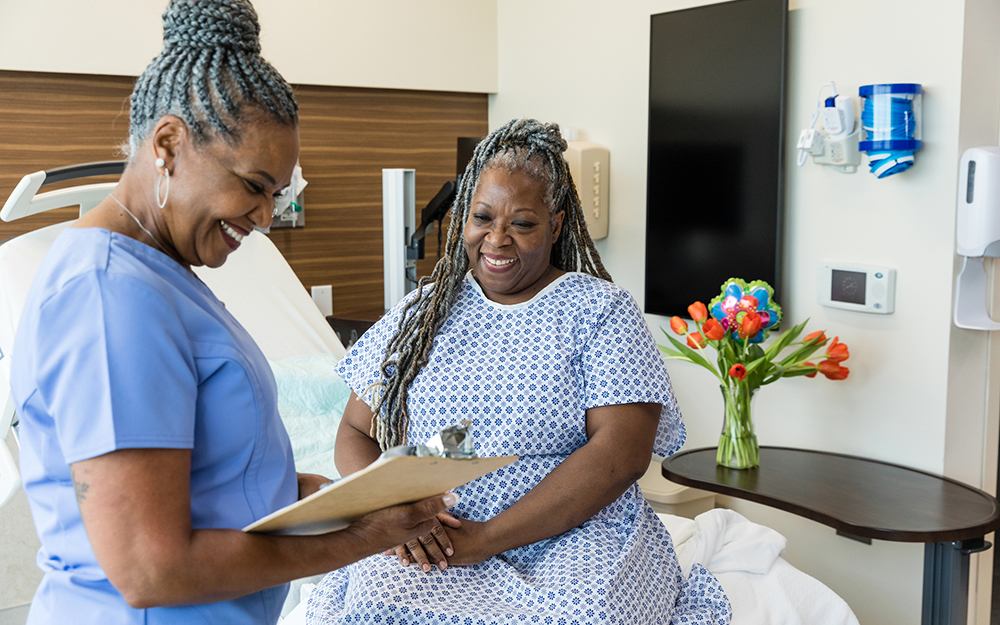Cedars-Sinai Blog
Taking the Fear Out of Colon Cancer Screening
Mar 20, 2025 Lisa Fields

Few medical tests arouse as much dread as a colonoscopy. The exam can be used to find—or prevent—colorectal cancer in people without symptoms or a family history. Even so, many people resist the screening.
“It’s the embarrassment of having someone look at your butt, the invasiveness of the procedure, the awkwardness and the fear of finding something,” said Zuri Murrell, MD, a Cedars-Sinai colorectal surgeon.
What’s even more unpleasant, some people say, is the laxative concoction patients traditionally have had to guzzle the night before a colonoscopy to prepare for the exam.
We asked Murrell what people should know about colonoscopies.

Zuri A. Murrell, MD
What Is a Colonoscopy, and Should I Be Screened?
During colonoscopy, doctors look for cancer or pre-cancerous growths, called polyps, inside the rectum and colon (large intestine). They insert a thin, flexible tube with a camera into the rectum, threading it through the length of intestine where polyps may develop. Doctors remove any polyps they find. Patients are under anesthesia and don’t feel anything.
“You go to sleep, you wake up and you may have saved your life,” Murrell said. “You can prevent colon cancer by removing polyps. And if you find cancer early, before there’s symptoms, stage 1 colon cancer is one of the most curable cancers.”
Screening colonoscopy is for adults age 45 and older who have no family history of colorectal cancer and no symptoms (like blood in the stool). Patients with a family history can begin screening 10 years before the age at which their relative was diagnosed.
How Do I Prepare for Colonoscopy?
Doctors prescribe laxatives, which patients use the day before a colonoscopy to empty their large intestine. This bowel prep gives doctors a clear view of the colon’s inner surfaces.
“The worst part of the procedure used to be the solution you had to drink prior to the colonoscopy—the terrible flavor of the prep liquid and the evacuation process,” Murrell said. “Today, the solutions are a lot better, and they’re lower-volume, less to drink.”
Some doctors prescribe pills for the bowel prep, rather than a flavored solution.
“You go to sleep, you wake up and you may have saved your life.”
Do Certain Groups Get Fewer Colonoscopies?
Research shows Black patients receive colonoscopies less often, a phenomenon Murrell says he is working to change.
“Their first words to a doctor may be, ‘No, I don’t want anything in my butt,’ and the doctor will write down ‘patient refuses,’ as opposed to explaining why it’s important,” Murrell said. “When patients don’t want a colonoscopy, I say, ‘Do you love your kids? If we do a colonoscopy and find polyps, your kids will get a colonoscopy at an earlier age, and you maybe just saved your kid’s life.’”
Murrell experienced this firsthand. During his father’s colonoscopy, doctors found polyps. Because of this, Murrell was screened before age 45 and had a pre-cancerous polyp removed.
“I knew his polyp history, got mine early and saved my life—I would have had cancer,” Murrell said. “That’s the biggest way you can love yourself. You shouldn’t die from fear or embarrassment.”
Read: Dodging a Colonosopy?



